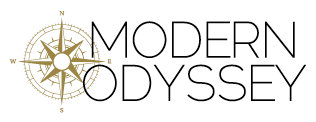
30 Mar Lessons In How To Succeed At Working Remotely
There’s always some chance of mishaps when you’re traveling and relying on technology to get certain tasks accomplished. But that’s not the only hiccups you might encounter while working remotely. Here, we’ll cover a few watch-outs and some of our lessons learned while on the road.
Requirements For Working Remotely
First and foremost, in order to work remotely, you need to be honest with yourself about whether you can do the following, regardless of whether you are working for a company or self-employed.
Be a self-starter – motivate yourself to complete tasks & achieve goals
The day, week and month will move forward without you if you don’t motivate yourself to set goals and make a plan/ timeline to accomplish them.
You may be in a situation where you aren’t exactly sure what direction you want to take, just that the previous path wasn’t working for you. And that’s okay! But be ready to dive into some heavy exploration and try new things to see what interests you.
Communicate effectively, whatever the medium
You will need to communicate effectively with any managers, virtual assistants or business partners even without having the luxury of meeting with them face-to-face. That could be via email, text, video chat, etc.
Manage your time and meet self-made and/or client deadlines
It’s not okay to miss a deadline. It could spell disaster. You have the privilege of working remotely, don’t be dismissive of deadlines. And account for delays if you know you’ll be traveling, maybe even finish beforehand. No excuses!
Complete your assignments according to agreed project proposals/contracts
No shortcuts or laziness because you happen to be at a sunny beach location and the waves are calling. A deal is a deal. You’ll only be employed if you’re a trusted partner.
Additionally, if you are:
working for a company — set clear expectations for workflow, assignments to be handled, and timelines so team members are informed of your expected contributions and how they will work with you.
freelance, contract, or self-employed — you will either need to manage various aspects of your business and finances or hire someone to do that for you.
Technology & Wifi Lessons
Confirm your WiFi connection ahead of time
Ensure you will have a strong WiFi connection wherever you may be working from. And don’t make assumptions. Directly ask about reliable WiFi when renting or booking accommodations.
We’ve had apartment owners state WiFi is free and available, but then realize, upon arrival, that they’re using:
– a hotspot device that has limited data
– or that they have one WiFi for multiple apartments in the building and your unit doesn’t have its own box; service is spotty, and it’s not a private connection
Use the Cloud & backup files
It will be wise to have all your important files saved via cloud technology so you can access from any device.
Also good to have a high-capacity flash or external hard drive on you for larger files and backups.
Have an organization strategy
Have a plan for how you want to organize your files, documents, notes, photos, media, etc. It will be confusing to have multiple methods and places where you keep things.
Is your equipment practical for travel?
Be sure you are comfortable carrying your electronic devices. There is nothing more uncomfortable than dragging a heavy backpack on your shoulders through airports. Do you really need a Kindle, iPad, smartphone and laptop? Trust us, it will weigh you down.
Is your equipment practical for your needs?
The flip-side to the bullet above, be sure your electronic devices are good enough for whatever tasks or job you need to get done while on the road. That includes that it’s in good shape too as you may not find what you need in your new location, or it might not be as affordable.
For example, Daniel prefers a large screen to be able to see his graphs and data sets (and all those tiny numbers) clearly. So he chose to buy a slightly bulkier personal 2-in-1 tablet computer with a 19-inch screen instead of a slim laptop. It’s not as fun to travel with, but he knew that going in and made cuts elsewhere in his luggage.
Prepare & protect
Ensure you have the necessary adapters for your equipment.
You may want to have a screen protector, a gel overlay for your keyboard, a hard cover case and a water repellent bag or pouch to protect your electronics while moving about.
Consider insurance for your electronics.
Focus-Related Lessons
Understand your work style and determine your ideal workspace
Some of us require total peace and quiet in order to produce at our best. This is especially true of occupations that involve writing, for example.
Others might prefer a more lively environment, with more audio and visual stimulus. Artists and designers might appreciate this kind of dynamic much better.
Understand what time of the day you tend to be most productive
Are you an early bird or a night owl?
Keep in mind, however, that there is evidence suggesting that people are usually more alert and clear-minded in the morning (but usually not within the first hour of waking up). This is the time when you might want to consider doing the work that requires the most “mental horsepower” — like creating content, for example.
Just like the office, there are many distractions, but they may come in different forms
Try to create a routine, or make a to-do list and plan your day the night before. That way, you can set aside time for the non-work related tasks and don’t let them bleed into your productive time.
I even use Asana, a project management platform and app to keep track of all my to-dos and calendar.
Batch errands and other tasks for efficiency
Similar to the point above, set aside specific for various mundane tasks, errands, and non-work related items.
Many successful workers take measures to:
– check their emails in batches at certain points of the day and only then so that they’re not constantly interrupted.
– batch tasks that require less brain power to do in the afternoon, maybe right after lunch so they can use their most productive hours (usually am) to conquer the hard stuff.
– batch meal prep for the week or a few days at a time so that the ingredients are chopped, and maybe already even cooked and just need reheating, so that meal time is easier.
If you’re traveling while working remotely, you will likely spend a good chunk of time planning and organize your next move(s). Set a specific time or a day aside to tackle as much at once, so they don’t interrupt your thought process when you are working.
Be realistic with what you can accomplish when fast traveling
If you are fast traveling, it’s a bit unrealistic to think you’ll get a lot of work done (unless you’re looking more at your computer than your new surroundings). Try to plan & complete your work before/after such travels.
Manage your time on social media and your phone
Social media, while very amusing, can be a time suck if you don’t keep track of your usage. If you’re prone to endless scrolling, set some limits. There are even apps like Freedom and Moment that can help you.
* * *
 Read about the future of work (hint: flexible work is on the rise!) and get more specifics on how to work remotely or as a freelancer with this post, Flexible Work is the Future; Here’s How to Go About It.
Read about the future of work (hint: flexible work is on the rise!) and get more specifics on how to work remotely or as a freelancer with this post, Flexible Work is the Future; Here’s How to Go About It.
 For an incredibly comprehensive list of freelance and entrepreneurial inspiration, tools, and resources, check out our post, The Ultimate Resource for Entrepreneurs and Freelancers.
For an incredibly comprehensive list of freelance and entrepreneurial inspiration, tools, and resources, check out our post, The Ultimate Resource for Entrepreneurs and Freelancers.
* * *
Are you working remotely? If so, what lessons have you learned? We welcome your comments, as we continue to expand our own list of lessons learned!
* * *
*This post includes some resource links (no affiliation).



No Comments